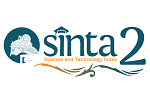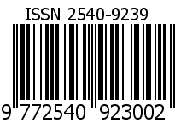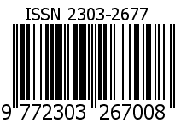Digital technology utilization and library's role in religious literacy
Abstract
Keywords
Full Text:
PDFReferences
Anwar, M. S. (2023). Construction of boarding school education system according to Nurcholish Madjid. Proceeding of International Conference on Education, Society and Humanity, 1(1), 1432–1440. https://ejournal.unuja.ac.id/index.php/icesh/article/view/6610
Botma, A., & Abdullah, A. W. (2022). Penguatan literasi sebagai upaya preventif terhadap radikalisme-ekstremisme beragama di Pondok Pesantren Assalaam Manado. Jurnal Ilmiah Iqra’, 16(1), 39–54. https://doi.org/10.30984/jii.v16i1.1887
Buckingham, D. (2015). Defining digital literacy - What do young people need to know about digital media? Nordic Journal of Digital Literacy, 10, 21–35. https://doi.org/10.18261/ISSN1891-943X-2015-Jubileumsnummer-03
Cholil, A., & Zanuddin, H. (2018). Fostering political participation among students of Pesantren through new media in Madura. International Journal of Engineering & Technology, 7(3.21), 441–447. https://doi.org/10.14419/ijet.v7i3.21.17210
Demasson, A., Partridge, H., & Bruce, C. (2019). How do public librarians constitute information literacy? Journal of Librarianship and Information Science, 51(2), 473–487. https://doi.org/10.1177/0961000617726126
Effendi, M. R. (2020). Mitigasi intoleransi dan radikalisme beragama di pondok pesantren melalui pendekatan pembelajaran inklusif. Paedagogie: Jurnal Pendidikan Dan Studi ISlam, 1(1), 54–77. https://doi.org/10.52593/pdg.01.1.05
Falloon, G. (2020). From digital literacy to digital competence: The teacher digital competency (TDC) framework. Educational Technology Research and Development, 68(5), 2449–2472. https://doi.org/10.1007/s11423-020-09767-4
Fraillon, J., Ainley, J., Schulz, W., Friedman, T., & Duckworth, D. (2020). Preparing for life in a digital world: IEA international computer and information literacy study 2018 international report. Springer International Publishing. https://doi.org/10.1007/978-3-030-38781-5
Hamid, A. (2017). Agama dan kesehatan mental dalam perspektif psikologi agama. Healthy Tadulako Journal (Jurnal Kesehatan Tadulako), 3(1), 1–14. http://jurnal.untad.ac.id/jurnal/index.php/HealthyTadulako/article/view/8714
Hatlevik, O. E., Throndsen, I., Loi, M., & Gudmundsdottir, G. B. (2018). Students’ ICT self-efficacy and computer and information literacy: Determinants and relationships. Computers & Education, 118, 107–119. https://doi.org/10.1016/j.compedu.2017.11.011
Indianto, D., Sunhaji, Azizah, I. N., & Zaman, A. R. B. (2021). Prophetic education at pesantren as efforts to prevent religious radicalism. IJORER: International Journal of Recent Educational Research, 2(5), 515–527. https://doi.org/10.46245/ijorer.v2i5.135
Ismah, N. (2022). Pesantren: Its founding and role in the colonial period. Tebuireng: Journal of Islamic Studies and Society, 3(1), 1–16. https://doi.org/10.33752/tjiss.v3i1.2610
Jamaluddin, E. W., Suprayogi, S., & Munandar, A. (2015). Pembinaan nilai toleransi beragama di Pondok Pesantren Annuriyyah Soko Tunggal Semarang. Unnes Civic Education Journal, 1(1), 16–21. https://doi.org/https://doi.org/10.15294/ucej.v1i1.225
Johan, R. C., Emilia, E., Syahid, A. A., Hadiapurwa, A., & Rullyana, G. (2020). Gerakan literasi masyarakat basis media sosial. Berkala Ilmu Perpustakaan Dan Informasi, 16(1), 97–110. https://doi.org/10.22146/bip.v16i1.35
Jones-Jang, S. M., Mortensen, T., & Liu, J. (2021). Does media literacy help identification of fake news? Information literacy helps, but other literacies don’t. American Behavioral Scientist, 65(2), 371–388. https://doi.org/10.1177/0002764219869406
Ladipo, S. O. (2023). Virtual access to open educational resources: What is the place of the library? International Journal of Library and Information Technology, 3(1), 17–23. https://gojamss.net/journal/index.php/IJLIT/article/view/837/pdf_5
Lahmi, A., Ritonga, M., Saputra, R., Mursal, Ayu, S., Nurdianto, T., & Afdhal, S. (2020). Internet, pesantren and management strategies educational building. International Journal of Advanced Science and Technology, 29(4), 2827–2836. https://doi.org/10.2139/ssrn.3754831
Malik, A., Sudrajat, A., & Hanum, F. (2017). Kultur pendidikan pesantren dan radikalisme. Jurnal Pembangunan Pendidikan: Fondasi Dan Aplikasi, 4(2), 103–114. https://doi.org/10.21831/jppfa.v4i2.11279
Marzuki, A., & Mabrur. (2020). Literasi digital: Sumber paham keagamaan pada mahasiswa penghafal Al-Qur’an di PTIQ Jakarta. Penamas, 33(1), 77–94. https://doi.org/10.31330/penamas.v33i1.381
Maskur. (2021). Tradisi Semaan Al-Quran di pondok pesantren. Al-Liqo: Jurnal Pendidikan Islam, 6(1), 68–82. https://doi.org/10.46963/alliqo.v6i1.320
Maskur, A. (2019). Penguatan budaya literasi di pesantren. IQ (Ilmu Al-Qur’an): Jurnal Pendidikan Islam, 2(01), 1–16. https://doi.org/10.37542/iq.v2i01.21
Miles, M. B., Huberman, A. M., & Saldana, J. (2018). Qualitative data analysis: A methods sourcebook. SAGE Publications.
Muchibin, A., & Lathifah, A. (2016). Analisis kemampuan literasi informasi santri Pondok Pesantren Futuhiyyah Mranggen Demak. Jurnal Ilmu Perpustakaan, 5(1), 171–180. https://ejournal3.undip.ac.id/index.php/jip/article/view/15300
Noorhayati, S. M. (2017). Pendidikan multikultural di pesantren (upaya membendung radikalisme di Indonesia). Madania: Jurnal Kajian Keislaman, 21(1), 67–78. https://doi.org/10.29300/madania.v21i1.212
Nuhrodin, & Dhina, M. A. (2021). Information literacy for santri in islamic boarding school (pesantren). Al-Hayat: Journal of Islamic Education, 5(2), 216–226. https://doi.org/10.35723/ajie.v5i2.191
Putra, F. M., & Sardini, N. H. (2019). Radikalisasi isu agama dalam pemilihan Gubernur Dan Wakil Gubernur DKI Jakarta tahun 2017. Journal of Politic and Government Studies, 8(4), 131–140. https://ejournal3.undip.ac.id/index.php/jpgs/article/view/25027
Rijalullah, M., Tabroni, I., Fathoni, D. A., & Anggraini, A. P. (2022). Islamic education: A deep look at educational goals in the digital age. L’Geneus : The Journal Language Generations of Intellectual Society, 11(3), 78–83. https://doi.org/10.35335/geneus.v11i3.3460
Samekto, A. (2021). Penerapan Theory Planned Behaviour pada penggunaan payment gateway oleh UKM di masa pandemi COVID-19. Penerbit NEM.
Seifi, L., Habibi, M., & Ayati, M. (2020). The effect of information literacy instruction on lifelong learning readiness. IFLA Journal, 46(3), 259–270. https://doi.org/10.1177/0340035220931879
Syahlan, T., Imron, A., Zulfa, L. N., & Shobirin, M. (2019). Pendampingan santri untuk membangun tradisi literasi di Pondok Pesantren Al-Mubarok Mranggen Demak. Dimas: Jurnal Pemikiran Agama Untuk Pemberdayaan, 19(1), 49–59. https://doi.org/10.21580/dms.2019.191.4144
Uygarer, R., & Uzunboylu, H. (2017). An investigation of the digital teaching book compared to traditional books in distance education of teacher education programs. Eurasia Journal of Mathematics, Science and Technology Education, 13(8), 5365–5377. https://doi.org/10.12973/eurasia.2017.00830a
von Brömssen, K., Ivkovits, H., & Nixon, G. (2020). Religious literacy in the curriculum in compulsory education in Austria, Scotland and Sweden - a three-country policy comparison. Journal of Beliefs & Values, 41(2), 132–149. https://doi.org/10.1080/13617672.2020.1737909
Wulandari, V. D., Ramadhany, N. F., Lisa, M., Neem, C., Sari, W. W., & Mathew, I. B. D. (2022). Perspectives of Islamic education students regarding urgency of technological skills and foreign language ability. International Journal of Islamic Studies Higher Education, 1(2), 119–132. https://doi.org/10.24036/insight.v1i2.135
Zulkarnain, L. (2023). The role of pesantren leaders in the digital age. Journal of Multi-Disciplines Science (ICECOMB), 1(1), 16–27. https://doi.org/10.59921/icecomb.v1i1.13
DOI: https://doi.org/10.24198/jkip.v12i1.52136
Refbacks
- There are currently no refbacks.
Copyright (c) 2024 Author(s)

This work is licensed under a Creative Commons Attribution-ShareAlike 4.0 International License.
Jurnal Kajian Informasi & Perpustakaan Indexed by:
Jurnal Kajian Informasi & Perpustakaan
Program Studi Perpustakaan dan Sains Informasi d.h. Program Studi Ilmu Perpustakaan
Fakultas Ilmu Komunikasi, Universitas Padjadjaran
Jl. Raya Bandung-Sumedang Km. 21 Jatinangor, Sumedang, Indonesia 45363
WA: +62 813-1323-7581 (Chat Only)
Telepon: +62227796954
Faksimile: +62227794122
email: jkip.fikom@unpad.ac.id
Jurnal Kajian Informasi & Perpustakaan is licensed under a Creative Commons Attribution-ShareAlike 4.0 International License
Jurnal Kajian Informasi & Perpustakaan supervised by:












2.png)
.png)



